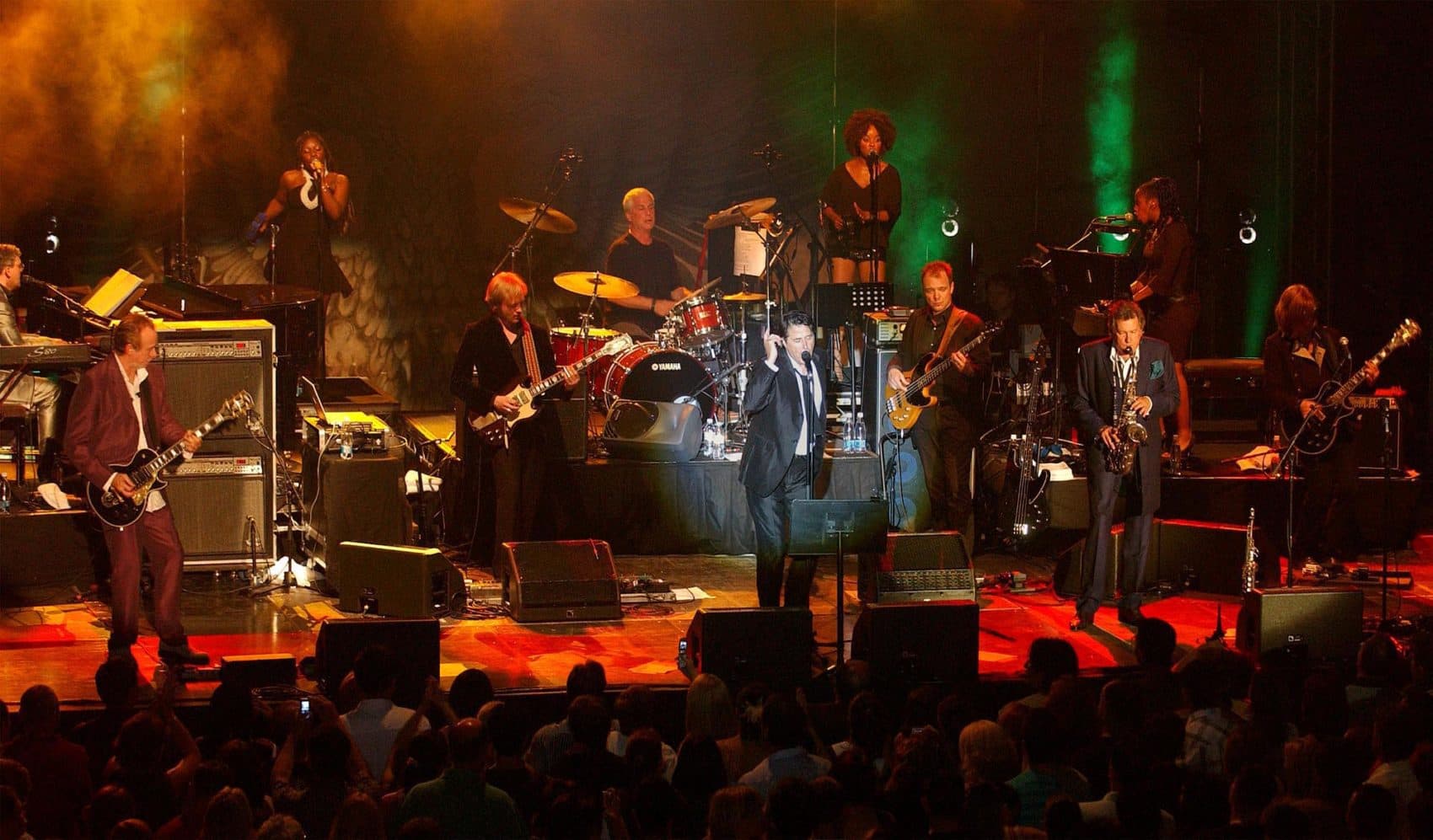Advertisement
Commentary
A 'Long Overdue Honor,' Roxy Music To Be Inducted In Rock & Roll Hall Of Fame

There are numerous arguments about the merits, or lack thereof, about the Rock & Roll Hall of Fame and conflicts over its criteria. Is it about popularity — record sales and concert tickets? Critical acclaim? Cultural influence? Some nebulous combination of them all?
Heated debates have been waged for years, but let’s table those concerns for a moment and just agree that induction is meritorious. And especially so, a salute to Roxy Music, a long overdue honor. The British band, fronted by singer-songwriter Bryan Ferry, was eligible for nomination since 1997, but first got on the ballot in 2018 and was justly voted in.
On March 29 in Brooklyn, Roxy Music will be inducted by Duran Duran’s John Taylor and Simon Le Bon. “They were just like nothing we’d ever seen before, were they?” Taylor recently said on Sex Pistols guitarist Steve Jones’ radio show, recalling seeing “Virginia Plain” on the BBC in 1972.
Duran Duran, of course, was highly influenced by the latter-day Roxy when they attained more commercial success with smooth and stylish songs such as “Angel Eyes,” “Oh Yeah,” “Over You” and “More Than This.”
But it’s hard to overstate what a mind-blowing mashup early Roxy was. There was no formula. It was art-rock or prog-rock, but warped, limned with a sly humor. It was glam-rock, but more in appearance than musical style. It was avant-garde, but still pop.
Maybe the best tag was retro-futurist. They pinched from 1950s American rock ‘n’ roll — particularly when saxophonist Andy Mackay was honking — and pushed forward with jarring arrangements and never-heard-before lyrical pursuits. Consider “In Every Dream Home a Heartache,” a slow, swirling love song about Ferry’s desire for . . . a blowup sex doll.
Ferry was both Sinatra-esque crooner and out-and-out rocker, one not averse to employing vibrato or falsetto. And, of course, there was Ferry’s suavity and sex appeal; he certainly set hearts aflutter when he insouciantly sang “To Turn You On” and “My Only Love.”
While Ferry was the focal point, Brian Eno — the self-described “non-musician” — was the synthesist and sound sculptor, twiddling knobs and tweaking the sound. On stage, costumed in flamboyant garb, Eno gave Roxy Music its otherworldly aura and a polysexual vibe.
Eno was gone after the second album, “For Your Pleasure,” exiting for a boundary-smashing solo career (and later fame as a producer), replaced by violinist/keyboardist Eddie Jobson. Ferry, guitarist Phil Manzanera and saxophonist/oboist Andy Mackay were constants throughout the years; on tour, Roxy was often augmented by various musicians and female backing vocalists. Ferry was the main songwriter, but sometimes collaborated with Manzanera and Mackay.
Roxy Music went through its ups and downs and three distinctly different phases, as Ferry told me back in 1993.
Ferry, who carved out a simultaneous career as a solo artist, looked back at the recording periods this way: “The first one, which is the first two records [‘Roxy Music’ and ‘For Your Pleasure’], was very exciting. There's the middle period [‘Stranded,’ ‘Country Life’ and ‘Siren’] where we were trying to become more musical, with Eddie Jobson in the band. I'd stopped doing keyboards on stage and became [only] the singer. That ended with ‘Siren’ in 1975.” That album spawned their first, breakthrough U.S. hit, “Love is the Drug,” charting at No. 30.
The band went on hiatus in 1976 and returned in 1979. The third phase includes the albums “Manifesto,” “Flesh + Blood” and “Avalon.” “During the final period, the records kept getting more sophisticated — a more atmospheric sound, softer on the drums,” Ferry said. “I got into a blacker [more soulful] thing, which personally I like better, but unfortunately it meant I stopped being as zany and, perhaps, quirky. ‘Avalon’ was a really interesting record, but it was very different, more smooth and more seductive than the earlier ones.”
Still, Roxy bent conventions. Listen to “Take a Chance on Me” and “Sentimental Fool,” both of which have long, textural, serpentine instrumental preludes before the vocals enter. And whether playful and frenetic (“Remake/Remodel”) or pained and measured (“Just Another High”), conflicted romance was a frequent Roxy theme. “It’s inexhaustible,” Ferry told me with a laugh when we last spoke in 2016.
Of Roxy’s later period, particularly the final studio album, 1982’s “Avalon.” Ferry said his challenge was to write songs that were “less tongue-in-cheek and more heart on my sleeve. I wasn’t trying to be clever so much in the lyrics; I was trying to be a bit more heartfelt and my aspiration as a songwriter became slightly different.”
“Avalon” was Roxy’s final studio album, but they reunited in 2001 and toured sporadically, disbanding in 2011. When I asked Ferry in 2016 whether there was any chance of another reunion, he said that was “by the boards.”
They will get together, of course, one last time, for that three- or four-song showcase set at the induction ceremony. Eno, though he will be inducted, will not be in attendance. (The show airs April 27 at 8 p.m. on HBO.) As for Ferry, at 73, he starts a world tour in May touring with, no doubt, a crack backing band and plays the Boston Opera House Aug. 5.




